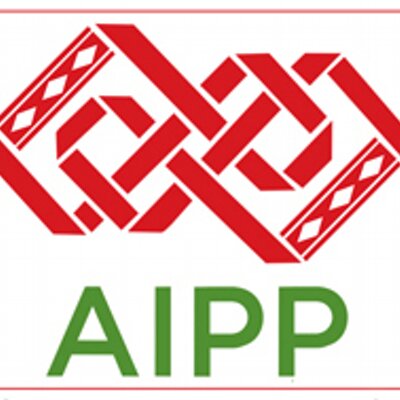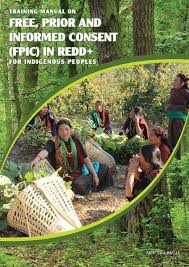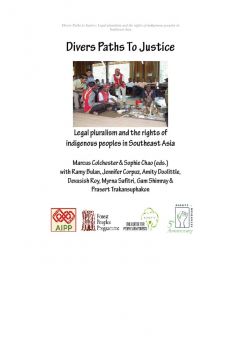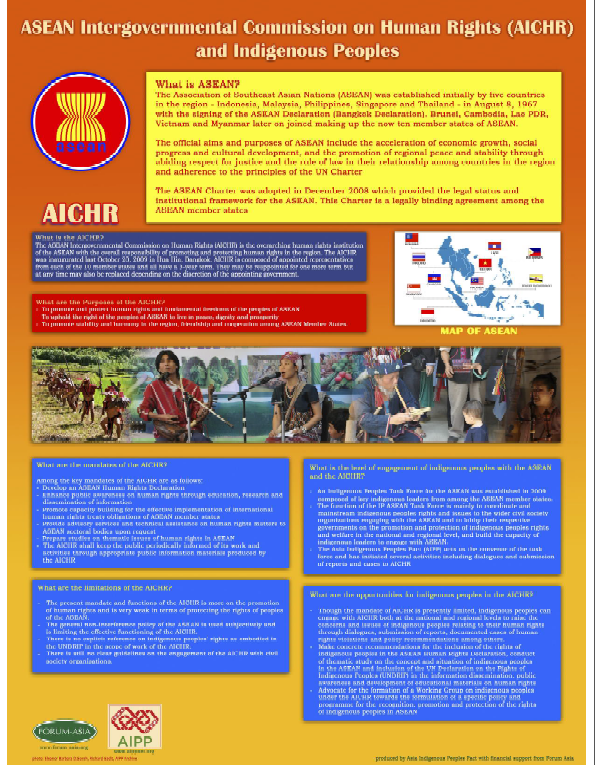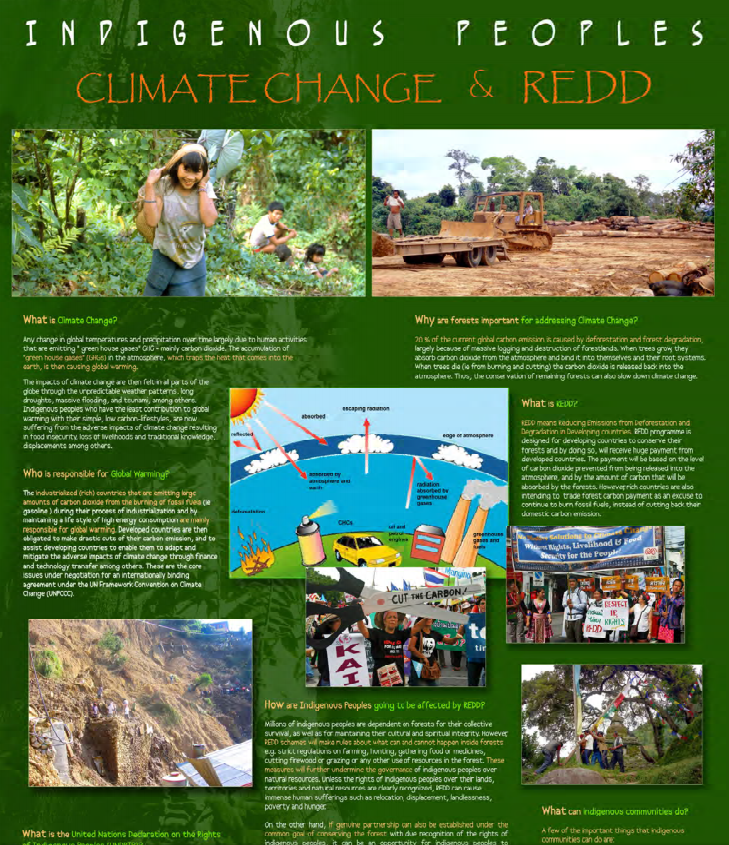Location
The Asia Indigenous Peoples Pact (AIPP) is a regional organization founded in 1988 by indigenous peoples' movements. AIPP is committed to the cause of promoting and defending indigenous peoples' rights and human rights and articulating issues of relevance to indigenous peoples. At present, AIPP has 47 members from 14 countries in Asia with 14 National Formations, 15 Sub-national Formations and 18 Local Formations. Of this number, 6 are Indigenous Women's Organizations and 4 are Indigenous Youth Organizations.
Our Vision
Indigenous peoples in Asia are fully exercising their rights, distinct cultures and identities, are living with dignity, and enhancing their sustainable management systems on lands, territories and resources for their own future and development in an environment of peace, justice and equality.
Our Mission
AIPP strengthens the solidarity, cooperation and capacities of indigenous peoples in Asia to promote and protect their rights, cultures and identities, and their sustainable resource management systems for their development and self-determination.
Our Goals
- To empower Indigenous peoples in Asia to promote and defend their human rights and fundamental freedoms and claim legal recognition to their identities, collective rights under UNDRIP and other international human rights instruments.
- To build the broadest solidarity and cooperation of indigenous peoples in Asia to strengthen indigenous movements.
- To promote and protect the integrity of the environment and enhance the sustainable resource management systems of indigenous peoples including their traditional knowledge, food security and biodiversity by having full control over their land, territories and resources.
- To attain full and effective participation of indigenous peoples, particularly indigenous women and youth at all levels of decision-making.
- To strengthen solidarity and cooperation with other social movements towards achieving equality, peace, democracy and justice.
Resources
Displaying 16 - 20 of 22Training Manual on Free, Prior and Informed Consent (FPIC) in REDD+ for Indigenous Peoples
This manual aims to build the capacities of the indigenous peoples, networks and organizations to advocate and work for the effective implementation of FPIC for indigenous peoples in the activities and projects relating to REDD+. In particular, the objective of this manual is to equip indigenous peoples with the knowledge and understanding of FPIC and REDD+; and to provide a general guide to communities on the application of FPIC in REDD+ activities in upholding their rights, interests and welfare.
Training Manual on Free, Prior and Informed Consent (FPIC) in REDD+ for Indigenous Peoples
This manual aims to build the capacities of the indigenous peoples, networks and organizations to advocate and work for the effective implementation of FPIC for indigenous peoples in the activities and projects relating to REDD+. In particular, the objective of this manual is to equip indigenous peoples with the knowledge and understanding of FPIC and REDD+; and to provide a general guide to communities on the application of FPIC in REDD+ activities in upholding their rights, interests and welfare.
Divers Paths to Justice: Legal pluralism and the rights of indigenous peoples in Southeast Asia
This publication reveals that the majority of Southeast Asian countries already have plural legal systems, and to some extent custom is recognised as a source of rights in the legal framework of a number of them. National and international courts have affirmed indigenous peoples’ customary rights in land. And all these countries have endorsed and ratified key international human rights laws and treaties-- thus, the basis for securing indigenous peoples’ rights through a revalidation of customary law exists.
ASEAN Intergovernmental Commission on Human Rights (AICHR) and Indigenous Peoples
Issue poster about the ASEAN Intergovernmental Commission on Human Rights (AICHR) and Indigenous Peoples.
Indigenous Peoples. Climate Change and REDD
Informatic poster about Indigenous Peoples, Climate Change and the REDD program.

